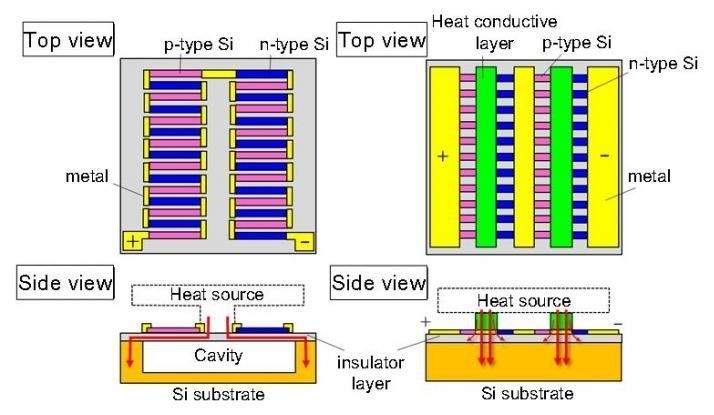A team of Japanese researchers from Waseda University, Osaka University, and Shizuoka University designed and successfully developed a high-power, silicon-nanowire thermoelectric generator which, at a thermal difference of only 5 degrees C, could drive various IoT devices autonomously in the near future.
Objects in our daily lives, such as speakers, refrigerators, and even cars, are becoming “smarter” day by day as they connect to the internet and exchange data, creating the Internet of Things (IoT), a network among the objects themselves. Toward an IoT-based society, a miniaturized thermoelectric generator is anticipated to charge these objects, especially for those that are portable and wearable.
Due to advantages such as its relatively low thermal conductance but high electric conductance, silicon nanowires have emerged as a promising thermoelectric material. Silicon-based thermoelectric generators conventionally employed long, silicon nanowires of about 10–100 nanometers, which were suspended on a cavity to cutoff the bypass of the heat current and secure the temperature difference across the silicon nanowires. However, the cavity structure weakened the mechanical strength of the devices and increased the fabrication cost.
